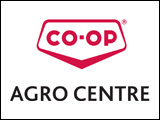The splash of colour flowers give to the landscape in spring brings a sense of hope that warm weather is on the way to turn the natural world green and vibrant. The Canadian Cancer Society has designated April as Daffodil Month in their efforts to raise funds for cancer research, and to draw awareness to the fact that great strides have been made in finding effective treatment for various types of cancer and, indeed, cures for others. The bright yellow of the daffodil in table bouquets or pinned on lapels spreads hope.
Research on cancer cures and treatments goes in many different directions, and involves various foods and substances. One of the foods that is currently of interest to cancer research scientists is mushrooms, which may be surprising to many since it is not technically a plant, but a fungus that does not use light and photosynthesis for energy. While mushrooms are considered a low-calorie food, delicious in salads and stirfrys, they are not often thought of as highly nutritious. Well, think again. Of the thousands of types of mushrooms in the world – some edible, others not – about half a dozen are currently being studied as possibly possessing compounds to fight cancer. This article will explore two of these – the shiitake and maitake mushrooms.
Consumed for medicinal purposes
Both shiitake and maitake are native to Asia, and have been widely consumed as food and for medicinal purposes in teas, tonics and herbal formulas for hundreds of years. In recent years, dietary supplements of active ingredients from the mushrooms are being extracted in Japan, China and western countries in order to isolate the particular compounds that have health benefits. More research and clinical trials need to be performed on intake of extracts from mushrooms to verify what seems at first glance to have implications for cancer prevention as well as positive effects on the cardiovascular and immune systems. Another question that remains is whether eating mushrooms is as beneficial or more so than ingesting the active substances. So what are the potential health-promoting compounds in mushrooms?
Shiitake mushrooms contain a compound known as lentinan, a beta glucan or a polysaccharide which is a large complex molecule made up of smaller sugar molecules. Beta glucan is believed to activate certain cells and protein that attack cancer, thus stopping or slowing tumor growth. Another substance, activated hexose-containing compound or AHCC is also thought to reduce tumor activity and lessen the side effects of cancer treatment. AHCC seems to be particularly effective in helping prevent cancers related to HPV (human papillona virus) such as cervical, anal and throat cancers. It should be noted these two compounds are also thought to boost the body’s immune system and help prevent heart disease by lowering cholesterol levels.
Not surprisingly, maitake mushrooms also contain a beta glucan, but this one is known as maitake-D fraction. It appears, however, to have similar benefits as lentinan – suppressing tumor growth and boosting the immune system. While the active ingredient has been extracted and is marketed as a dietary supplement in Japan and the United States, there is no convincing clinical evidence to date that the maitake mushroom is effective in preventing cancer in humans. Experiments have so far been done on mice, but research on humans is underway. There is also an early phase study being conducted on young patients to determine whether beta glucan can increase the effectiveness of rituximab, a drug used in treating some types of lymphoma and leukemia.
Edible varieties
While more research is going on to pinpoint the exact health benefits of mushrooms, it is certain that edible varieties such as shitake and maitake as well as others including morels, portabello, chanterelle, oyster, enoki and even the common white table mushrooms have plenty to offer as a delicate and nutritious food. Many contain a host of vitamins, minerals and antioxidants, and some have a fairly high quality of protein.
To reduce cancer risk, the Canadian Cancer Society recommends eating a balanced diet that includes plenty of fruits and vegetables, whole grains and low-fat meat and dairy, and choosing lesser processed foods over refined ones.
It is also imperative that one keeps informed on new research that may show some surprising sources of nutrients and compounds to help lower the risk of various types of cancer. At the same time, don’t be afraid to check supplements that may give your immune system that extra support for optimum health.



